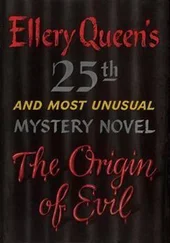"Mina."
You looked at me. You did not speak. Perhaps for a full minute you looked at me and did not speak. Then you hurled the earring into the thistles and took hold of my arm.
"We are out for a stroll," you said.
"Yes, out for a stroll," I agreed happily.
What happened to us. What did you see in me.
No, I do not expect an answer. You are in New York. Up to your eyeballs in work, I expect. As usual. Who can rival your power of periodically turning over a new leaf.
If I were to try to examine myself through your eyes that day in Arza, I should not be much the wiser. You saw before you a withdrawn man with a pensive expression and a cautious way of moving. Rather a lonely man, to judge by outward appearances. Not lacking in sensuality, though, as you must have learned when you overheard him flirting with the girl Jasmine. Not bad looking, either, as I have already stated. A tall, thin man, inclined to turn pale in moments of emotion or embarrassment, his features angular and decidedly intellectual. Hair going slightly gray, but still falling luxuriantly over his forehead, enough perhaps to attract attention. He may have struck you as a rootless artist, he may have looked to you like an unconventional musician from the conservatoire of some German-speaking land, who had turned up here in Western Asia and now bore his degradation with silent, tight-lipped resignation: there is no way back. A melancholy man, yet capable nonetheless, in unusual circumstances, of wholehearted enthusiasm.
In brief, an orphan and a dominating aunt, according to your definition. A definition, however, that you only voiced some time later.
By lunchtime, we were already sharing a table. Chatting about the poet Gottfried Benn. And putting our heads together like a couple of conspirators, trying to work out the order in which the various tables were served. It was Jasmine who served us. As she poured the mineral water I was splashed slightly, because she was not paying attention. I did not complain; on the contrary, as she leaned over me her firm breasts almost brushed my shoulder. At their base, glimpsed through the opening of her white overall, there showed a network of blue veins, such as one sometimes finds in marble from Galilee.
My lust did not escape your notice. You were amused and began to tease me. You started asking me certain questions about my bachelor life. All without batting an eyelid, as if you were inquiring where I bought my shirts. Apparently your practical experience as a psychologist (before you devoted yourself to research) enabled you to ask me questions of a sort not normally exchanged by new acquaintances.
As for me, I blanched as usual. But I made up my mind this time not to evade your questions. Only I found the choice of words very difficult.
"This time you have not changed the subject to Svidrigailov," you observed ruthlessly.
Again we went for a walk together, this time beyond the perimeter, toward the buildings of the small farming settlement of Motza. My loneliness, and perhaps my extreme caution in the choice of my words, aroused your sympathy. You liked me, and you said so in a matter-of-fact tone of voice. Afternoon light on the hills. The gentle cypresses. A blaze of geraniums among the houses of the settlement, red-tiled roofs, a poinciana flaming red like a greeting from Tel Aviv. A light, dry breeze. Our conversation now is impersonal, Viennese as it were, a sort of exchange of views on the question of sexual pleasures and their relation to the emotions. You are remarkably free in the way you speak about anatomical and physiological details. You find my hesitancy appealing perhaps, but definitely surprising nonetheless: After all, Emanuel, we are both doctors, we are both perfectly familiar with these mechanisms, so why are you so embarrassed, secretly praying for me finally to change the subject?
I apologize; my embarrassment springs from the fact that in Hebrew the intimate particulars of the anatomy — very well, the sexual organs — have newly invented names, which seem rather sterile and lifeless, and that is why, paradoxically, I find it hard to utter them. You describe this explanation as "pilpulistic." You do not believe me. When all is said and done, what is to prevent my switching to German, or making use of the Latin terms? No, you do not believe me. Unhesitatingly you identify psychological inhibitions. Latent puritanism.
"Mina," I protest, "forgive me, please, but I'm not one of your patients yet."
"No. But we are making each other's acquaintance. We are taking a walk together. Why don't you ask me questions about myself?"
"I haven't got any questions. Only one, perhaps: you have been humiliated by someone, a man, perhaps a cruel man, a long time ago perhaps, viciously humiliated."
"Is that a question?"
"I was… voicing an impression."
Suddenly, forcefully, you take my head between your hands.
"Bend down."
I obey. Your lips. And a small discovery: tiny holes in the lobes of your ears. Is it possible that you once wore earrings? I do not ask.
Then you remark that I seem to you like a watch that has lost its glass. So vulnerable. So helpless. And so touching.
You touch my hair. I touch your shoulder. We walk on in silence. Darkness is falling. Overhead a bird of prey in the last rays of twilight. A vulture? A falcon? I do not know. And there is a hint of danger: outside the grounds of the sanatorium, Arab shepherds roam. Not far away is a notorious brigand village called Koloniyeh. We must be getting back. All around us the sadness of darkening rocks. Night is falling on an arid boulder-land. Far on the northern horizon, in the direction of Shu'afat and Beit Ikhsa, a star shell splits the sky, fades, shatters to shivers of light, and dies in the darkness.
After supper, a vulgar entertainer from the Broom Theater appeared in the dining room. He told jokes and made fun, in a heavy Russian accent, of the hypocrisy of the British government and the savagery of the Arab gangs. Finally, he even made faces at the audience. The Trade Union bigwig flushed, rose from his seat, and condemned such frivolity as being out of place in such critical times. The entertainer retired to a corner of the room and sat down, abashed, on the verge of tears. The audience was totally silent. When the speaker used the word "self-restraint," you suddenly burst into loud, resounding laughter, youthful laughter, which instantly provoked a reaction of astonished rage all around. At once people were laughing with you, or perhaps at you. We left the dining room. Darkness in the corridors and on the stairs. Almost immediately we were in each other's arms. Whispering, this time in German. You liked me, you said, you had a small volume of Rilke in your room, you said, and after all we were both adults and free agents.
In your room, almost without an exchange of words, rules were established at once. Orphan and dominating aunt. I must play the part of an ignorant, awkward, shy, but obedient pupil. But grateful. And very diligent. Yours to command in a whisper, and mine to obey in silence. You had all the details drawn up ready in your mind, as if you were carrying out an exotic program taken from an erotic handbook: Here. Now here. Slowly. Harder. More. Wait. Wait. Now. That's right.
Dear Mina, we both intended that night to be the first and the last. Adults, you said, free agents, you said, but, after all, who is an adult or a free agent, both of us were captured by a force that carried us away like twigs in a river. Perhaps because I was subjugated. Perhaps you had decided from the outset to subjugate me that night, and so I found myself a slave. But you, too, became a slaveowner, Mina, through my very subjugation. And again the following afternoon. And the next night. And again. And after the holidays you began sending postcards to me in Jerusalem with curt commands: Come to Haifa the day after tomorrow. Expect me on Saturday night. Come to Kate Graubert's pension in Talpiyot. I'll come to you for the festival. Tell Fritz that his fast is almost over. Hug Gips and Gutzi for me.
Читать дальше











